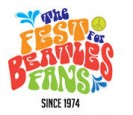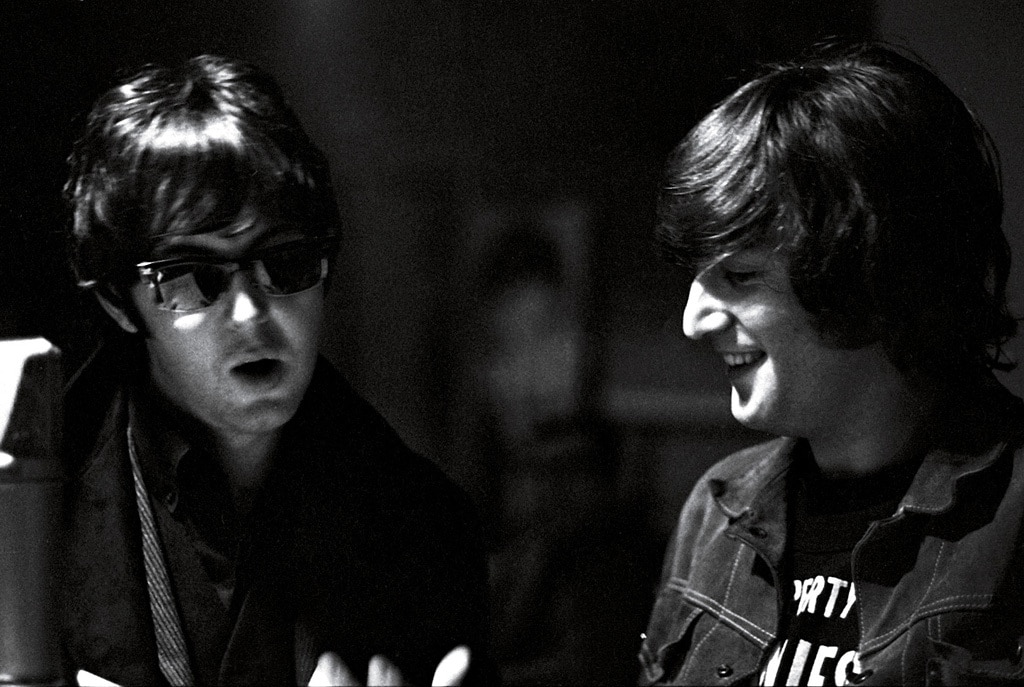You’re probably not surprised to find out that my husband played in a band (mainly rhythm guitar, but he also plays bass and piano). And, he’s recorded his own CD of original songs called Preferred Risk. Over the last few days, I’ve heard one of his songs –- called “Words” –- playing in a loop in my head. The “hook” or catch phrase is this:
Words that are written down –
Meanings realized –
Words placed together
Change our lives.
What could be more true? Think of all the wonderful words that have altered the course of your life: “I do.” “It’s a boy!” or “It’s a girl!” or “It’s twins!” or “You won!” or “I have your back.” Or “You’ll be attending (your favorite school’s name here) this fall!” or “I love you.” These words lift us up for years to come.
John Lennon placed his heart’s longing and his life’s purpose in the hands of words. He said quite honestly, “Half of what I say in meaningless. But I say it just to reach you, Julia.” In that simple, honest line he offered up, unabashedly, his life’s mission statement. And throughout his years here, John did just that. He used words to try to reach the “girl in a million, my friend,” the lovely Julia Lennon.
Paul McCartney, likewise, tried endlessly to explain to Jane Asher through his lyrics that he needed her to relinquish her career and “be with him” if they were to be happy. In one song after another (increasingly argumentative), he pled his case via “What You’re Doing,” “I’m Looking Through You,” “We Can Work it Out,” “You Won’t See Me,” and even “Here, There, and Everywhere.” Paul kept saying in plaintive words: “I need you to give up what you’re doing and be there for me.” He phrased it in every version possible.
Why? Because Paul knew that words have great appeal, great power. American poet Carl Sandburg realized that when he wrote this simple but unforgettable poem, “Primer Lesson.”
Look out how you use proud words.
When you let proud words go, it is not easy to call them back.
They wear long boots, hard boots; they walk off proud; they can’t hear you calling–
Look out how you use proud words.
No one understood this simple or “primer” lesson better than John Lennon. When his long and complicated discussion with journalist Maureen Cleave ended up being dissected, lifted out of context, and placed on the cover of Datebook magazine, John discovered how quickly the things we say and write can get away from us…can stalk off to live sordid lives of their own without our being able to “call them back.” Over and over and over on the 1966 North American Tour, in press conference after press conference, John apologized for his words about The Beatles being “more popular than Jesus.” But it was to no avail. His words had taken on a life of their own.
I’m a news junkie, and last night as I was listening to a rehashing of the day’s events, I decided that about 80 percent of our news items center on things that people have said: words or phrases about someone else, to someone else, about another country, agency, political candidate, or alleged crime for which they are being investigated. We even have a term for this sort of thing; we call it “a sound byte.” Words dominate our politics as well as our private lives.
Because society is inexorably “tied at the hip” (or “tied at the hype,” as you choose) to Facebook, Instagram, LinkedIn, Twitter, and every other social media “flava of the month,” words have become dangerous weapons hurled at others on the spur of the moment.
We Tweet without censure. We blast someone on Facebook. We “Like” or “Dislike” and leave nasty comments for one another at will. We use words to wound, accuse, blame, and tear down. Without any concrete evidence, we sling vile accusations that have zero basis in fact. And we think that is acceptable. It’s not.
John and Paul would have been the first to warn us all that words, once spoken (or written) cannot be retrieved. Indeed, Paul eloquently sang, “Her words (and kindness) linger on when she no longer needs you.”
Images fade. Over time, facts blur. But the words that someone speaks to us and about us linger on. We remember.
What does Paul McCartney remember about his Mother Mary? He remembers her words: “Let it be.”
What does John Lennon say will set you free? “The Word.”
What immediately ties you to George Harrison? A single word. “Something.”
And without Ringo’s words (for example, “Tomorrow Never Knows”) Beatles history would have been quite different.
In Liverpool, one of my favorite spots is the “bombed out church” now turned into a garden of reflection in the heart of the city. Here, the violence of war has been turned into a retreat of peace. The wreckage of a bomb’s tragic destruction is daily being transformed into beauty.
But the wreckage of words will not reverse itself as easily. Children are “crippled inside” for a lifetime by the words we say. Families are torn apart. Friendships are ended with no hope of reparation. Marriages are injured. Look out how you use words. They have a dark magic all their own. And, my friends, it is large and in charge.
Jude Southerland Kessler is the author of the John Lennon Series: www.johnlennonseries.com
Jude is represented by 910 Public Relations — @910PubRel on Twitter and 910 Public Relations on Facebook.











Posts like this briethgn up my day. Thanks for taking the time.
Lennon may have apologized for it, but he had no need to. He was right.
Thank you, Bobbi! Glad you enjoyed it!
Jude